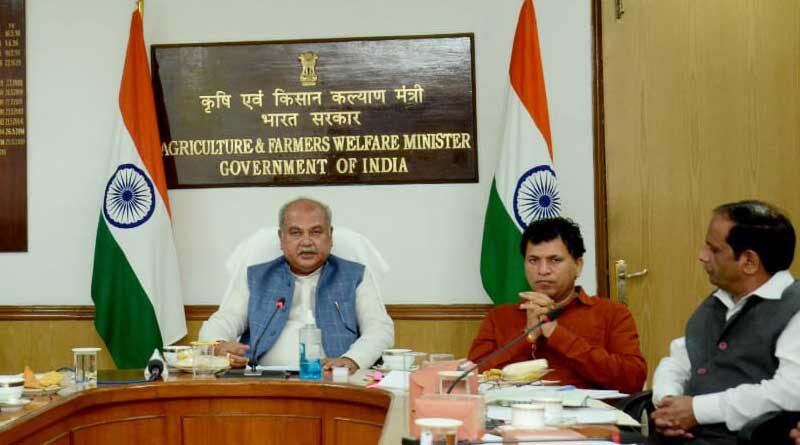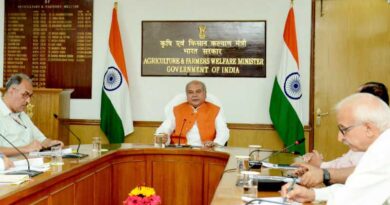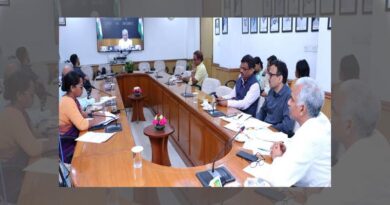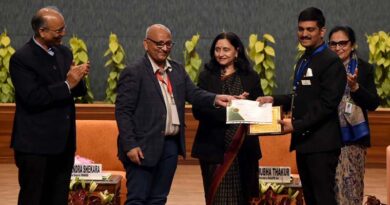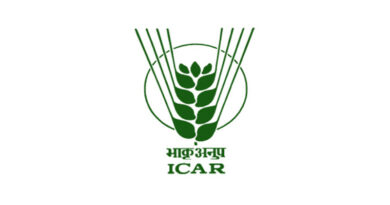Central Government asks Punjab, Haryana, Uttar Pradesh and Delhi to strive for achieving Zero Stubble Burning
22 September 2022, New Delhi: Union Minister for Agriculture and Farmers Welfare Mr. Narendra Singh Tomar today called upon the State Governments of Punjab, Haryana, Uttar Pradesh and NCT of Delhi to strive for achieving Zero Stubble Burning in very near future.
He promised all Central help to achieve this noble mission and added that this is a kind of curse on these States, as they receive a lot of public ire due to negative media publicity.
Mr. Tomar said, Rs 600 crore was already provided to the States this financial year and they have the unspent amount of Rs 300 Crore, which should be utilized properly. Moreover, about two lakh machines have been made available to the States. The Minister said, the Centre and the concerned States should jointly evolve a long-term planning and must undertake multi-pronged activities to achieve the target of Zero Stubble Burning within a specified time-frame.
Mr. Tomar told the officials of the States to strengthen and widen the IEC activities to make aware the farmers that stubble burning leads to loss of soil fertility in the long run, like the overuse of urea. He urged the officials to make arrangements to take the farmers to the sites, where the Pusa Decomposer developed by the Indian Council of Agricultural Research (ICAR) is being used for practical demonstrations.
The Department of Agriculture & Farmers Welfare is continuing the implementation of the Central Sector Scheme on ‘Promotion of Agricultural Mechanization for In-Situ Management of Crop Residue in the States of Punjab, Haryana, Uttar Pradesh and NCT of Delhi’ during 2022-23 with an outlay of Rs. 700 Crores. So far, an amount of Rs. 240.00 crores, Rs. 191.53 crores, Rs. 154.29 crores and Rs. 14.18 crores have already been released to the State of Punjab, Haryana, Uttar Pradesh and ICAR, respectively as first instalment. During the current year, provisions have also been incorporated to promote the use of bio-decomposer technology on large scale in these States.
The scheme was introduced in 2018-19, with the aim of addressing air pollution in Delhi and National Capital Region due to stubble burning in the adjoining States of Punjab, Haryana and Uttar Pradesh and to subsidize machinery required for in-situ management of crop residue. Under this scheme financial assistance for purchase of crop residue management machines is provided @ 50% of the cost to individual farmers and @ 80% of the project cost to Cooperative Societies of farmers, PFOs and Panchayats for establishment of Custom Hiring Centres of Crop Residue Management Machines. Funds are also provided to the States and ICAR for undertaking Information, Education & Communication (IEC) activities for mass awareness of farmers and other stakeholders.
The Scheme promote the usage of machines such as Super Straw Management Systems, Happy Seeder, Super Seeder, zero till seed cum fertilizer drill, Mulcher, Paddy Straw Chopper, hydraulically reversible mould board plough, Crop reapers and Reaper binders for in-situ management of crop residue and Balers & Rakes which are used for straw collection in the form of bales for other ex-situ uses of straw. ‘Smart Seeder’ machine has been newly added for promotion under the scheme.
During the period from 2018-19 to 2021-22, the funds amounting to 2440.07 crores have been released (Haryana – Rs. 693.25 crores, Uttar Pradesh – Rs. 533.67 crores, NCT of Delhi – Rs. 4.52 Crores, ICAR and other Central Agencies – Rs. 61.01 crores, and the major share has gone to the State of Punjab i.e. Rs. 1147.62 Crores).
Out of these funds, during the last 4 years, the State Government of Punjab, Haryana, Uttar Pradesh and NCT of Delhi have established more than 38422 Custom Hiring Centres of crop residue management machinery to provide machines & equipment to the small and marginal farmers on rental basis (Punjab- 24201 Nos., Haryana- 6775 Nos and Uttar Pradesh – 7446 Nos). A total of more than 2.07 lakh crop residue management machines have been supplied to these established CHCs and to the individual farmers in these 4 States (Punjab- 89151 Nos., Haryana- 59107 Nos., Uttar Pradesh – 58708 Nos. and NCT of Delhi – 247 Nos) which also include more than 3243 Balers & Rakes.
Use of Pusa Decomposer for in-situ management of stubble
Pusa Decomposer, a microbial consortium of fungal species (both in liquid and capsule forms) developed by Indian Council of Agricultural Research (ICAR) has been found effective for rapid in-situ decomposition of paddy straw. During the year 2021, decomposer has been used in the States of Punjab, Haryana, Uttar Pradesh and NCT of Delhi in an around 5.7 lakh hectare area which is equivalent to about 3.5 million tonnes of straw managed. Through satellite imaging and monitoring, it was observed that the 92% area of the decomposer sprayed plots has been managed through decomposition and only 8% area in these plots was burned.
For effective control of paddy stubble burning during the ensuing season, the Hon’ble Minister directed that the States should chalk out a comprehensive action plan at micro level, establish a mechanism to ensure effective utilization of machines, promote use of bio-decomposer in a complimentary mode with the CRM machines, promote ex-situ utilization of straw by way of mapping demand from adjoining industries like biomass based power plants, bioethanol plants etc. and take up IEC activities for mass awareness among farmers through intensive campaigns in the electronic/print medias, social media as well as through Kisan Melas, publications, seminars, advisories with the involvement of all stakeholders in this sector. If all the actions are taken at the State level in a holistic manner, the stubble burning can be effectively controlled during the coming season.
Also Read: Arrival of soybean in Mandsour Mandi improves; average rate lower than last year but above MSP
(For Latest Agriculture News & Updates, follow Krishak Jagat on Google News)

